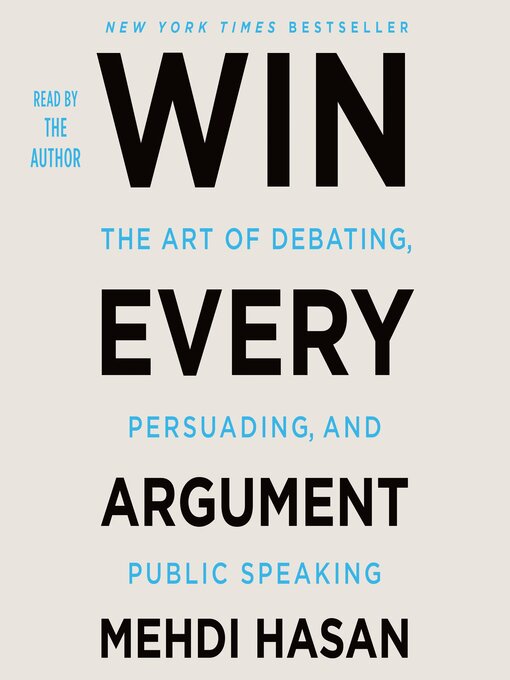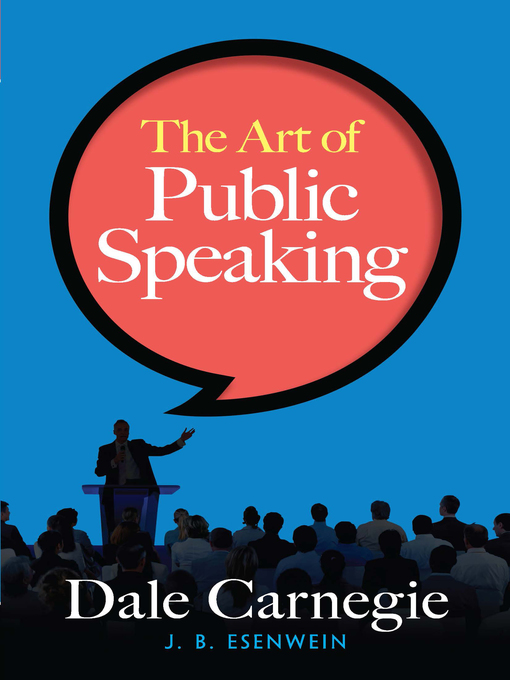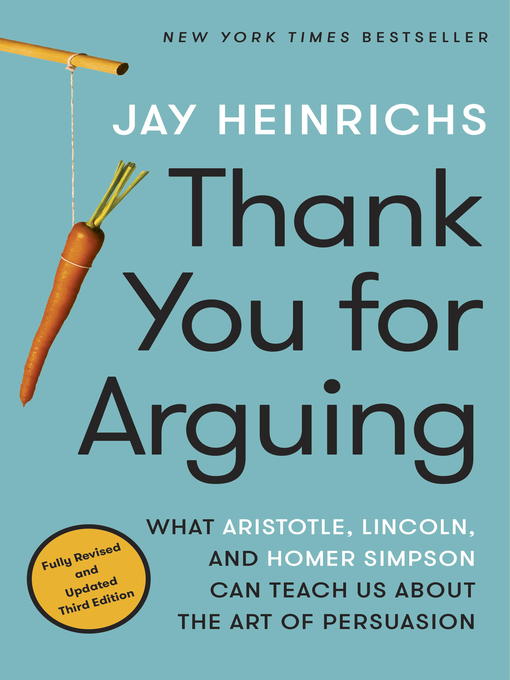Teens and older adults are perhaps the two age groups you might think have the least in common. But a new program at BPL seeks to bring the two generations together ... by having them debate.
Resources mentioned on this episode:
- Learn more about services for older adults at BPL and programs for teens!
- Listen to "Bridging the Gap," a podcast series on our BKLYN Community Audio feed and check out these books about debate.
- Take this very short survey to let us know what you think about Bridging the Gap: Intergenerational Debate at BPL.
Check out these books about debate.
Episode Transcript
Shayla Rahman How do you think debate can either help or improve mental health in our generation and older generations as well?
Princess Benn James Okay. So, we're having a debate and you tell me how you're feeling. That's your feeling. I have to respect that feeling. So with debate, we can share our feelings. I think with dialogs between generations, I think it would help.
[Theme song starts]
Virginia Marshall Okay, so that was Shayla Rahman and Princess Benn James, a teenager and an older adult. They were discussing whether debate – you know, like the high school debate model where there are two teams and each team has to argue either side of a statement – whether that kind of program can improve the relationship between older folks and younger folks. Did I get that right?
Berena Hughes Pretty much! Shayla and Princess were two participants in a program here at Brooklyn public library called Bridging the Gap: Intergenerational Debate.
Virginia Marshall Okay ... intergenerational debate ... I’m intrigued. Tell me more about it.
Berena Hughes Well, instead of telling you about it, how about I set the scene?
Virginia Marshall That sounds great. I’m Virginia Marshall, senior audio producer.
Berena Hughes And I’m Berena Hughes, outreach program assistant at Brooklyn Public Library and today, co-host of the podcast.
Virginia Marshall You’re listening to Borrowed: stories that start at the library.
[Music fades into sound from debate]
Berena Hughes This is sound from the basement of Brooklyn Public Library’s Kensington Branch on a chilly afternoon this past November, when a handful of older adults and teens came together ... to argue.

[Sound from debate]
Berena Hughes This particular evening, the teens and older adults were debating a pretty important topic: whether technology does more to prevent crime than it enables people to commit crimes.
Virginia Marshall Ok, so is it really like the debate clubs I remember from high school?
Berena Hughes In a way, yes. The idea comes from Dr. Thomas Benson, who created the senior debate model because he believed, like we do, that seniors have so much to offer intellectually. And he also wanted to explore older adults collaborating with teenagers by having them debate in intergenerational teams. He thought that because both teenagers and seniors are groups that are often dismissed or misunderstood, sort of pushed to the margins — what better way to create connection between them, than having them debate! We chose the name “Bridging the Gap” for obvious reasons. As for what intergenerational debate means in more practical terms, I’ll let one of our participants describe it. This is Sandra Surita. She is, as she says ... “over 60."
Sandra Surita We have to prepare the affirmative and the negative Because we don't know what we're going to defend until the day of the debate.
Virginia Marshall Wow, so they come in not knowing which side they’ll argue? It sounds like there’s a lot of work involved.
Berena Hughes Yes, I guess you could say that there’s homework. Participants have to do their own research and prepare their arguments. It’s definitely a program that requires some commitment. Now, Sandra is a busy person. In her working life, she was a substance abuse counselor, and before that she had a career on Wall Street. She had an active working life, and now that she’s retired ...
Sandra Surita I think I'm more active retired than I was working. I'm not sure because I think I need a vacation. [Laughs]
Berena Hughes So, whatever you thought about seniors living sedentary lives ... throw that out the window. Many of the seniors I interact with at BPL are active people. They’re attending dance classes and swimming at the Y, they’re enrolled in continuing education classes, some take care of their grandchildren. Sandra is part of her community book club and she also does community outreach activities.
Virginia Marshall That’s incredible.
Berena Hughes Listen, it’s more than many of us do! Despite her many clubs and associations, Sandra says she really loves being part of the Intergenerational Debate. She says that it helps her feel more confident about herself.
Sandra Surita Being part of the debate program helped me to just stop and assess: okay, what do you need to get through this? What do you need to do to prepare for the lesson? And it helped me just feel like a freshman. And like your first day in school, but I love to learn. So it refreshed me.
Virginia Marshall I mean, it takes guts to stand up in front of people and argue a point. But I'm wondering .., what does she think about having teenagers for teammates?
Berena Hughes Well, that’s a great question, because as I said, the main goal for our Bridging the Gap program is to bring seniors and teens together, have them work together, listen to each other, and share their knowledge and experiences — so that the divide between the two can be diminished. Another older adult who was debating that day was Alex Rowan Hazlerigg. Here’s what she had to say about working with teenagers.

Alex Rowan Hazlerigg Well, it amuses me. I think ... I didn't know what to expect, but I had read an article in The Times about increasing age, meaning that it would be a good idea to mix more with teenagers because they challenge our presumptions and vice versa. So I thought, it's a gift.
Berena Hughes Alex said that working with teens during the debate program made her think differently about teens when she interacts with them out in the world. You know, on the street or public transportation. She has less judgement about them, even if they’re acting out.
Alex Rowan Hazlerigg It's got me into thinking about, well, why is this person behaving this way? For example, not the way I'm behaving. You know, where are they coming from? Which has been good for me. Because at my age, there's a tendency to stick with your own circle. And this has forced me, not forced me. I've chosen it, but it has encouraged me to be in the circle of other people, older and younger.
Virginia Marshall So, what about the teens? What do they think about working with older folks?
Berena Hughes One of the teens who was there that day was Raihanul Bari, a junior in high school. He’s a really great, hard-working young person. He said that before this program, the only older adults he interacted with were his grandparents.
Raihanul Bari My relatives that I have, we usually wouldn't be as open to stuff like this as, like these adults here. It's actually pretty fun since like, since they're they're more older than me, they have more wisdom and stuff.
Berena Hughes So, Raihanul is on a team with Sandra Surita. And, before they went up to the podium and defended and rebutted and made closing arguments, we got to hear from both of them about what it’s like to be on a team together.
Sandra Surita Oh, working with the youth. Oh, it's been the best part of the debate because they are so bright. They know how to research. They know how to look up data, and being a senior, they looked to me for leadership.
Raihanul Bari Sandra, she's actually been like a really great teammate as she provides lots of support for both me. And she's also been really compassionate about stuff. We we both support each other and we also have like, you know, we actually do like Zoom meetings before this. And in the Zoom meetings we talk about our plans and strategy.
Sandra Surita You know I'm smiling more when I see him. You know, like that's our future. You know, and maybe I could contribute to their betterment.
[Music fades back into sound from the debate]
Virginia Marshall Okay, so, who won the debate?
Berena Hughes So, it was a really great debate, but at the end of the day, the team that was arguing the affirmative side — that technology does more to create crime than it does to prevent crime — they won. And while it’s really amazing for the participants to have that pride and accomplishment of a win, for us, the win is really seeing these two very different generations come together and have positive interactions. I’ve seen older adults and teenagers realize how much alike they really are, and that they don't have to be apprehensive or indifferent about each other. They can work together and have fun.
Virginia Marshall And, if listeners want to hear more from the participants in the program, you have a whole series of episodes on our BKLYN Community Audio podcast feed.
Berena Hughes True. You can search for "Bridging the Gap" on your podcast app of choice, and you’ll be able to hear the teen and older adult interviews we’ve captured.
Virginia Marshall And as a bonus, I thought we could listen to the rest of the clip that we started this episode with. It’s one of my favorite moments from your "Bridging the Gap" series. So this is Shayla Rahman and Princess Benn James again, and they got into some pretty deep topics.
Berena Hughes Oh definitely ... I loved working with those two. Let’s listen.
[Music]

Shayla Rahman When you were doing this debate, what was something new that you learned about yourself, about a teenager, about your generation, our generation?
Princess Benn James What you guys are going to we have been there, done that. It's only in a different format and it's a different thing. Kids deal with problems differently compared to when I'm growing up.
Shayla Rahman Hm, I really liked when you said that you went through what we go through, but just in a different format. That's like, that's the first time I heard that. Which and kind of makes sense. Like, yeah, we went to school, we both went to school, but we went to school in like different ways. Between our generation, older generations and I feel like later generations, too, the main problem will be that there's not enough communication. And that's something that we need to fix from now, so that later generations have it easier.
Princess Benn James And so first thing we have to learn how to respect each other.
Shayla Rahman Mhm. I think there's a lot of things that all the generations they need to learn and unlearn as well, like the respect things like, "Oh you, I'm older than you, you should respect me" Or, "I don't need to respect you." Those two things are things that we should like, unlearn. But and one thing that we should learn is that in respect is earned.
Princess Benn James Respect given is respect respect earned.
Shayla Rahman Respect given is respect earned. That's what ... more people need to learn that.
Princess Benn James Yes, respect given is respect earned.
Shayla Rahman Thank you. You have such insightful thoughts. Like, your brain is sharp.
Princess Benn James You know, growing up as a child, people always tell me that I dress old and I think old. Yes, from very young. People always say, you always think, you always dress like an old person. Because I always dressed covered. And you think like an old person.
[Laughter]
[Music]
Virginia Marshall That was Shayla Rahman and Princess Benn James on our "Bridging the Gap" podcast. If you liked this episode and the idea of intergenerational debate — or if you didn’t — we’d love it if you would take a short survey that’s linked in the episode description and let us know what you think.
Berena Hughes It’s really very short, just three questions ... and it will help us evaluate our program.
[Music]
Berena Hughes Borrowed is brought to you by Brooklyn Public Library. This episode was produced by Virginia Marshall and written and hosted by me and Virginia. You can read a transcript of this episode and also find a list of books we've put together related to debate. That's all at BKLYN Library [dot] org [slash] podcasts. Bridging the Gap: Intergenerational Debate at BPL is made possible through the generosity of The Eisner Foundation.
Virginia Marshall Brooklyn Public Library relies on the support of individuals for many of its most critical programs and services. To make a gift, please go to B-K-L-Y-N-library [dot] org [slash] donate. Our Borrowed team is made up of: Adwoa Adusei, Fritzi Bodenheimer, Robin Lester Kenton, Damaris Olivo, and Ali Post. Jennifer Proffitt and Ashley Gill run our social media. Our music composer is Billy Libby. Meryl Friedman designed our logo. We’ll be back in a couple of weeks with another episode of Borrowed: stories that start at the library.










